Blanca Torres Vara from the Technical University of Munich (TUM) stayed at the ICWRGC from 15.10.2018–14.04.2019 to write her Master’s thesis dealing with “Nutrient Loads in South Africa”. She successfully completed this thesis in May 2019.
Cultural eutrophication is caused by the increase of anthropogenic nutrient loads and is one of the main water quality issues in the world, threatening biodiversity and human development. South Africa is especially vulnerable to the effects of eutrophication due to its reliance on reservoirs to supply water. The estimation of nutrient loads has been proved a powerful tool in the environmental management of nutrient pollution but it has yet not been implemented in South African environmental policy.
This Master’s thesis takes this opportunity and assesses spatial and temporal variability of total oxidized nitrogen and orthophosphate loads in South Africa from 1990 to 2018. It has the following threefold goals:
- To improve the knowledge about the water quality status in South Africa with respect to nutrient loads, their influencing factors, such as land use or precipitation, and its future development.
- To provide a tool for the environmental management of nutrient river loads. It identifies the areas most severely affected within the study area, allowing a better allocation of resources.
- To serve as a pilot project for the development of integrated data products in the framework of the Global Terrestrial Network – Hydrology (GTN-H).
The study shows that the nutrient status in South African rivers has a strong seasonal component, 70% of the annual nutrient load is exported during the wet season. The segments assessed are split between nutrient sinks and nutrient sources for nitrogen and phosphate. The Limpopo, Vaal and Berg rivers have been identified as priority areas with regards of nutrient loads, mainly due to intense agriculture and urban development. The natural retention capacity shown in other river segments could provide an economical and environmental friendly nutrient management measure for such areas. The implementation of measures involving the estimation of river nutrient loads in South Africa is achievable with the data available and can contribute to ensure the water quality of South Africa in the future.
If you are interested in reading the entire pdf of the master thesis, you may contact Ms. Torres Vara at:




